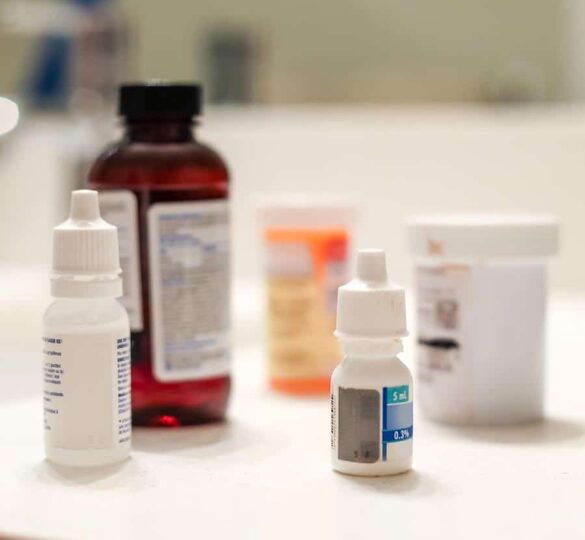Problems with Prescription Eye Drop Refills?

Some glaucoma patients who use eye drop medications have been faced with more stringent restrictions on their prescriptions.
In the last few years, many glaucoma patients who use eye drop medications have been faced with more stringent restrictions on their prescriptions.
Insurance companies now impose limits on quantities of eye drops and refill intervals. However, many patients have trouble putting in exactly one drop, precisely onto the eye.
It is natural to have some drops hit your cheek occasionally or to have two drops come out at once. This unavoidable waste of drops is one reason that some patients run out of their drops too soon.
The American Academy of Ophthalmology and the American Glaucoma Society have been hard at work, meeting with insurers and Medicare officials to ensure that glaucoma patients receive the medications they need to prevent vision loss from glaucoma. Because of these efforts, recent memos issued from Medicare have instructed insurers to allow refills of eye drops at reasonable intervals.
Steps You Can Take
If you have been denied necessary medication or timely refills of your prescription eye drops, here are some steps you can take.
- Keep track of how long a bottle of eye drops lasts for each of your prescriptions, and discuss the problem with your pharmacist. They should be able to tell you what your insurance allows for your prescription.
- If the pharmacist cannot ask for an exception or provide you with more of the eye drops, call your insurance company or prescription drug plan to register a complaint. The customer service phone number is on your insurance or drug plan card.
- If you have a Medicare supplemental plan or a “Part D drug plan”, you can also call Medicare directly at 1-800 633-4227 to register a complaint about your plan’s rules about eye drop refills.
- Speak to your doctor and be sure to bring your insurance and prescription plan cards to your appointment. It is important that your eye doctor know if there are times when your eye drops run out before the end of the month or if there are days when you skip doses because you do not have enough. The doctor may be able to provide a sample of eye drops and can also request an exception from your insurer to allow enough medication.
Article by Cynthia Mattox, MD. Last reviewed on May 19, 2022.
Cynthia Mattox, MD
Cynthia Mattox, MD, is Vice Chair and Director of the Glaucoma Service at New England Eye Center, Department of Ophthalmology, Tufts University School of Medicine, Boston MA. Dr. Mattox serves on the American Academy of Ophthalmology Health Policy Committee, and the American Glaucoma Society Patient Care Committee.